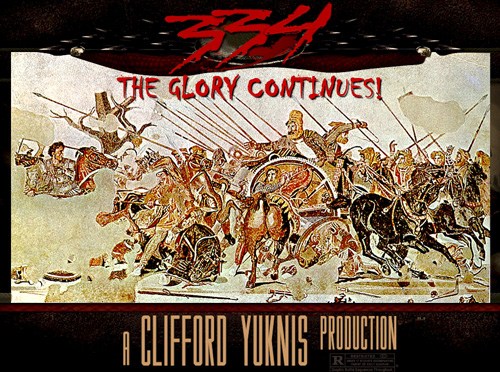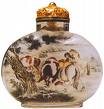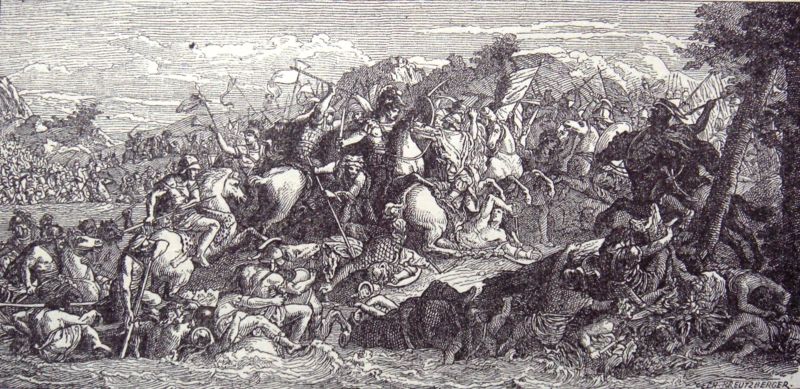 |
|
|
May
22, 2007 |
|
|
Tuesday, May 22
Informal Smoker
Tower Club Bar
Tuesday, June 5
University Series
Speaker: Ted Foss |
|
 |
|
|
About the Cigar Society |
|
|
ONE OF THE OLDEST
AND greatest traditions of the University Club is the
discussion of intellectual, social, legal, artistic, historical,
scientific, musical, theatrical, and philosophical issues in the
company of educated, bright, and appropriately provocative
individuals, all under the beneficent influence of substantial
amounts of tobacco and spirits.
The University
Club Cigar Society embraces this tradition and extends it
with its fortnightly Informal Smokers, monthly
University Series lectures, and quarterly Cigar Society Dinners,
in which cigars, and from time to time pipes and cigarettes,
appear as an important component of our version of the classical
symposium.
The Informal
Smokers meet at the round table in the Tower Club bar.
There are no reservations or cover charges, and each member
signs his own chit for drinks a lá carte. Sometimes a
theme is published in
advance, but the table talk always strays. The format of the Cigar Society University Series
includes cocktails at 5:15pm, a lecture or reading starting at
5:30 sharp for about thirty minutes, and discussion and more
cocktails to follow.
Premium open bar and light snacks are included in University
Series events; members sign a chit for $30 and guests may pay $40
(inclusive) in cash.
All University
Club and Tower Club members and their guests are invited to all
Cigar Society events. To be included in
the Cigar Society's mailing list, write to the Secretary, Curtis
Tuckey, at tuckey@post.com.
|
 |
|
|
Informal
Smoker: Tuesday, May 22, Tower Club, 5:15 pm |
|
 Club member
Clifford Yuknis (DePaul '71), who
has seen the movie 300 (as I write this) at least 47 times, has
been persuaded by your secretary to take the substantial sums he
earned from his recent
Gone Wild
franchise and invest it in the production of a bloodily masculine yet historically and philosophically
appealing
war movie. At our next
meeting, Cigar Society regulars and nascent scriptwriters Club member
Clifford Yuknis (DePaul '71), who
has seen the movie 300 (as I write this) at least 47 times, has
been persuaded by your secretary to take the substantial sums he
earned from his recent
Gone Wild
franchise and invest it in the production of a bloodily masculine yet historically and philosophically
appealing
war movie. At our next
meeting, Cigar Society regulars and nascent scriptwriters
 Alexander "the Great" Sherman (Classics, Princeton
'97) and Darius "the Third" Gill (Wisconsin,
'87) will unveil a treatment of their original screenplay, 334.
The story is based on their namesakes' Battle on the Granicus River, in which after a
potentially disastrous
blunder on Alexander's part he rallied to defeat Darius's
armies in an overwhelming victory on May 22, 334 BC. Alexander "the Great" Sherman (Classics, Princeton
'97) and Darius "the Third" Gill (Wisconsin,
'87) will unveil a treatment of their original screenplay, 334.
The story is based on their namesakes' Battle on the Granicus River, in which after a
potentially disastrous
blunder on Alexander's part he rallied to defeat Darius's
armies in an overwhelming victory on May 22, 334 BC.
Alexander (Sherman) and Darius (Gill),
emulating the duo of Affleck and Damen (who co-wrote and co-starred in
Good Will Hunting), are reportedly
undergoing extensive abdominal development work with University Club
chief trainer
Tim Behland, in preparation for the blue-screen auditions that
may commence later this summer
for Yuknis Productions. Recommended reading for Tuesday's
discussions are Frank Miller's
300
and Plutarch's
The
Battle on the Granicus.
We shall assemble at the round table in
the Tower Club bar, 5-7pm. Drinks are á la carte, and there
is no need to RSVP for these Informal Smokers. Bring your own
cigars, or take advantage of the new Cigar Society Humidor —
Μολών Λαβέ.
 |
|
University
Series, Tuesday, June 5, Tower Club, 5:15 pm |
 Theodore
N. Foss, club member and associate director of the Center for East
Asian Studies at the University of Chicago, will be addressing the Cigar
Society on current scholarship in the field of Jesuits in China.
Cocktails at 5:15, lecture at 5:30, discussion to follow at 6:00. $30
includes open bar and light hors d'oeuvres. Bring your own cigars.
RSVP to Laura Herold, Tower Club
Manager. Theodore
N. Foss, club member and associate director of the Center for East
Asian Studies at the University of Chicago, will be addressing the Cigar
Society on current scholarship in the field of Jesuits in China.
Cocktails at 5:15, lecture at 5:30, discussion to follow at 6:00. $30
includes open bar and light hors d'oeuvres. Bring your own cigars.
RSVP to Laura Herold, Tower Club
Manager.Between 1585 and the end
of the eighteenth century a total of some 600 European men traveled to
China as Jesuit priests and brothers. Debating religion and
philosophy, investigating and describing Chinese culture and society,
carrying out scientific inquiry, translating Chinese texts and
translating European works into Chinese, and ingratiating themselves
into elite
 society,
the Jesuits left a lasting record. Among other topics, Professor
Foss will touch on the introduction by Europeans of tobacco into China,
and display a snuff box given by the Jesuits to the Emperor of China.
Recommended reading:
Journey to the East: The Jesuit Mission to
China, by
Liam Brockey (Harvard Press, 2007), a new book in
the Club library. society,
the Jesuits left a lasting record. Among other topics, Professor
Foss will touch on the introduction by Europeans of tobacco into China,
and display a snuff box given by the Jesuits to the Emperor of China.
Recommended reading:
Journey to the East: The Jesuit Mission to
China, by
Liam Brockey (Harvard Press, 2007), a new book in
the Club library.
Dr. Foss (AB Pomona '72,
PhD Chicago '79, University Club '81) is Associate Director of the
Center for East Asian Studies at the University of Chicago. He
previously held positions as Assistant Director of the Center for East
Asian Studies and Lecturer in the Department of Religious Studies at
Stanford University, Co-founder and Associate Director of the Ricci
Institute for Chinese-Western Cultural History at University of San
Francisco, and Assistant Professor, Department of History, University of
Illinois at Chicago. |
|
|
Reading
for May 22
|
From
Livius.org
The battle on the Granicus
The Greek author
Plutarch of
Chaeronea describes the battle in section 16 of his Life of
Alexander.
The translation below was made by Mr.
Evelyn and belongs to the Dryden series.
In the meantime, Darius's captains,
having collected large forces, were encamped on the further bank of the
river Granicus, and it was necessary to fight, as it were, in the gate
of Asia for an entrance into it.
 The
depth of the river, with the unevenness and difficult ascent of the
opposite bank, which was to be gained by main force, was apprehended by
most, and some pronounced it an improper time to engage, because it was
unusual for the kings of
Macedonia to march with their forces in the month called Daesius.
But Alexander broke through these scruples, telling them they should
call it a second Artemisius. And when
Parmenion advised him not to attempt anything that day, because it
was late, he told him that he should disgrace the Hellespont, should he
fear the Granicus. The
depth of the river, with the unevenness and difficult ascent of the
opposite bank, which was to be gained by main force, was apprehended by
most, and some pronounced it an improper time to engage, because it was
unusual for the kings of
Macedonia to march with their forces in the month called Daesius.
But Alexander broke through these scruples, telling them they should
call it a second Artemisius. And when
Parmenion advised him not to attempt anything that day, because it
was late, he told him that he should disgrace the Hellespont, should he
fear the Granicus.
And so, without more saying, he immediately took the river with thirteen
troops of horse, and advanced against whole showers of darts thrown from
the steep opposite side, which was covered with armed multitudes of the
enemy's horse and foot, notwithstanding the disadvantage of the ground
and the rapidity of the stream; so that the action seemed to have more
frenzy and desperation in it, than of prudent conduct.
However, he persisted obstinately to
gain the passage, and at last with much ado making his way up the banks,
which were extremely muddy and slippery, he had instantly to join in a
mere confused hand-to-hand combat with the enemy, before he could draw
up his men, who were still passing over, into any order.
For the enemy pressed upon him with
loud and warlike outcries; and charging horse against horse, with their
lances, after they had broken and spent these, they fell to it with
their swords. And Alexander, being easily known by his buckler, and a
large plume of white feathers on each side of his helmet, was attacked
on all sides, yet escaped wounding, though his cuirass was pierced by a
javelin in one of the joinings. And Rhoesaces and Spithridates, two
Persian commanders, falling upon him at once, he avoided one of them,
and struck at Rhoesaces, who had a good cuirass on, with such force
that, his spear breaking in his hand, he was glad to betake himself to
his dagger. While they were thus engaged, Spithridates came up on one
side of him, and raising himself upon his horse, gave him such a blow
with his battle-ax on the helmet that he cut off the crest of it, with
one of his plumes, and the helmet was only just so far strong enough to
save him, that the edge of the weapon touched the hair of his head. But
as he was about to repeat his stroke,
Clitus,
called the black Clitus, prevented him, by running him through the body
with his spear. At the same time Alexander dispatched Rhoesaces with his
sword.
While the horse were thus dangerously
engaged, the Macedonian
phalanx
passed the river, and the foot on each side advanced to fight. But the
enemy hardly sustaining the first onset soon gave ground and fled, all
but the mercenary Greeks, who, making a stand upon a rising ground,
desired quarter, which Alexander, guided rather by passion than
judgment, refused to grant, and charging them himself first, had his
horse [...] killed under him. And this obstinacy of his to cut off these
experienced desperate men cost him the lives of more of his own soldiers
than all the battle before, besides those who were wounded.
The Persians lost in this battle twenty
thousand foot and two thousand five hundred horse. On Alexander's side,
Aristobulus says there were not wanting above four-and-thirty, of
whom nine were foot-soldiers; and in memory of them he caused so many
statues of brass, of Lysippus' making, to be erected. And that the
Greeks might participate in the honor of his victory he sent a portion
of the spoils home to them particularly to the Athenians three hundred
bucklers, and upon all the rest he ordered this inscription to be set:
Alexander the son of
Philip,
and the Greeks,
except the Lacedaemonians [4],
won these from the barbarians who inhabit Asia.
All the plate and purple garments, and
other things of the same kind that he took from the Persians, except a
very small quantity which he reserved for himself, he sent as a present
to his mother. [
continued ]
|
| |
|
Respectfully
submitted by
Curtis Tuckey, Secretary
With pipe and book at close of
day
Oh, what is sweeter, mortal,
say! |
|
|
University Club Cigar Society
Officers for 2007.
David O'Connor, King. Gerald I. Bauman, Treasurer. Curtis
Tuckey, Secretary. J. Douglas Johnson, Liaison to Chicago
Croquet Club (Honorary).
Jeffrey Dean, Chair of the Subcommittee concerning Pipe Smoking.
Alexander Sherman, Metropolitan Philosopher. Thomas S. O'Brien,
Stentorian. John H. Nelson, Herald.
|
|
|
|